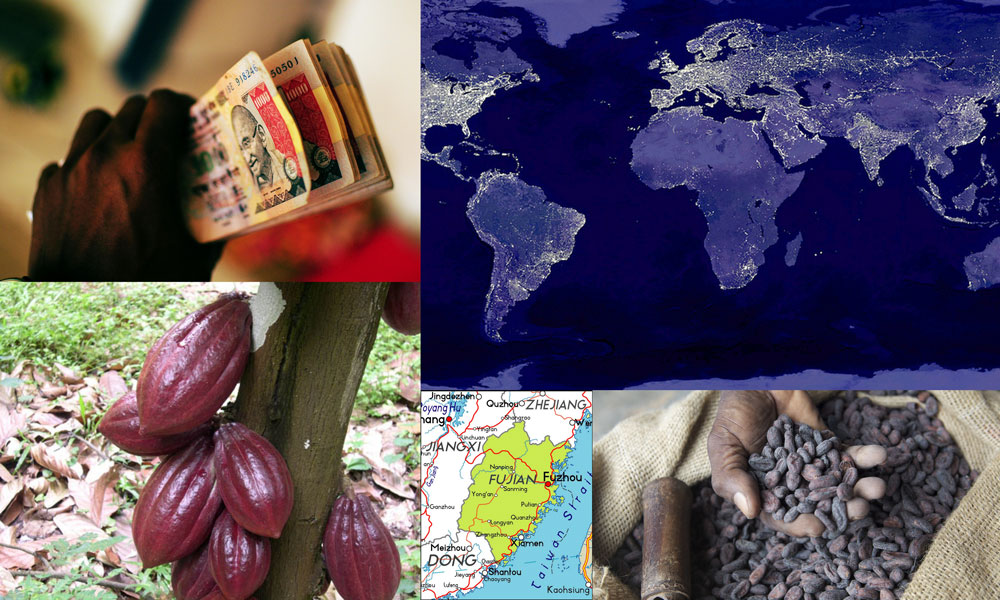2014 Annual Conference "Cities and Development: Urban Determinants of Success"
DRI's annual conference took place on November 18, 2014 in the Rosenthal Pavilion of NYU Kimmel Center. 350 guests attended to hear the presentations and discuss research that examines cities as dynamic units at which development happens. The event was co-hosted by the NYU Marron Institute of Urban Management.
Program and Speakers:
Download the conference program with speaker bios here.
Photographs (courtesy of Dave Anderson):
[shareprints gallery_id="5803" gallery_type="filmstrip" gallery_position="pos_center" gallery_width="width_100" image_size="xlarge" image_padding="0" theme="light" image_hover="false" lightbox_type="slide" comments="false" sharing="true"]Videos (courtesy of Dave Anderson):
[embed]http://youtu.be/nE-Ri8147q8[/embed]
[expand title="Click to view the conference abstract"] The success and failure of cities reveal powerful development forces which are hard to see on a national scale. Ideology, policy, risk, and the spread of people, goods and ideas operate in unique ways in urban environments. "Cities and Development: Urban Determinants of Success" presents city-level analyses that bring new perspectives to development debates. [/expand]
[embed]http://youtu.be/kgCM80Zl8_E[/embed]
[expand title="Click to view the abstract for Paul Romer's 'The Power of the Grid'"]
In coming decades, urban populations will grow fastest in places where government capacity is most limited. If governments set the right priorities, these limits need not preclude successful urban economic development. The history of New York City shows that a government with limited capacity can implement measures that cost little, have a high social rate of return, increase its future tax base, and encourage the development of norms that support the rule of law. The Commissioner’s Plan of 1811 defined and protected a network of public space in the city’s expansion area that could then be used to encourage mobility, provide utilities, and directly enhance the quality of urban life. City governments that focus first on this foundation and then follow with laws and a system of enforcement that protect public health and limit violence can create urban environments in which private actions can drive successful economic development. [/expand]
[embed]http://youtu.be/3qQXPy-Utt0[/embed]
[expand title="Click to view the abstract for Bill Easterly and Laura Freschi's 'A Long History of a Short Block: Four Centuries of Development Surprises on a Single Stretch of a New York City Street'"]
National and even city aggregates can conceal dynamism at smaller scales. A history of one block in Manhattan over more than a century shows how it had many ups and downs and many turbulent transitions, but twice achieved unexpected and remarkable success. (Work is co-authored with Steven Pennings.) [/expand]
[embed]http://youtu.be/rUlBTsqY76U[/embed]
[embed]http://youtu.be/YOSQ65D7nJE[/embed]
[expand title="Click to see the abstract and get the paper download link of Alain Bertaud's 'The Effects of Top-Down Design versus Spontaneous Order on Housing Affordability: Examples from Southeast Asia''"]
The spatial structure of large cities is a mix of top-down design and spontaneous order created by markets. Top-down design is indispensable for the construction of metropolitan-wide infrastructure, but as we move down the scale to individual neighborhoods and lots, spontaneous order must be allowed to generate the fine grain of urban shape. At what scale level should top-down planning progressively vanish to allow a spontaneous order to emerge? And what local norms are necessary for this spontaneous order to result in viable neighborhoods that are easily connected to a metropolitan-wide infrastructure? Examples from Southeast Asia show that an equilibrium between top-down designed infrastructure and neighborhoods created through spontaneous order mechanisms can be achieved. This equilibrium requires the acknowledgement by the government of the contribution of spontaneous order to the housing supply. Spontaneous order ignored or persecuted by government results only in slums. Download paper here. [/expand]
[embed]http://youtu.be/B0hMS4eUVV8[/embed]
[expand title="Click to view the abstract for Nassim Nicholas Taleb's 'Small Is Beautiful--But Also Less Fragile"]
Coverage
Urb.im has launched a series of blog posts about our conference. Here are the first two posts on Paul Romer's presentation, and William Easterly and Laura Freschi's talk.








